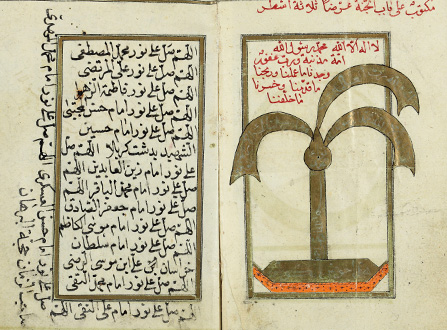Early globalization and the economic development of the United States and Brazil [electronic resource]
لتكبير النص لتصغير النص- كتاب
| العنوان |
Early globalization and the economic development of the United States and Brazil [electronic resource] / John DeWitt. |
|---|---|
| الطبعة |
1st ed. |
| الناشر |
Westport, Conn. : Praeger |
| تاريخ الإصدار |
2002 |
| ملاحظات |
Bibliographic Level Mode of Issuance: Monograph Includes bibliographical references (p. [167]-173) and index. English |
| رقم الرف |
Cover -- Early Globalization and the Economic Development of the United States and Brazil -- Contents -- Illustrations -- MAPS -- Acknowlegments -- Introduction -- "NATIONAL CHARACTER" -- MODERNIZATION THEORY AND DEPENDENCY THEORY -- THESIS OF THIS BOOK -- FIVE HUNDRED YEARS OF GLOBALIZATION -- AUTHOR'S VIEWPOINT -- CHAPTER SUMMARIES -- NOTES -- CHAPTER 1 The Mother Countries: World Power and Vassal State -- Mercantilism Dominates Colonial Policies -- PORTUGAL: FROM GLORY TO SUBSERVIENCE -- Treaties with Great Britain Reduce Portugal to Vassalage -- GREAT BRITAIN: THE RISE OF A SUPERPOWER -- Agricultural Revolution Increases Production, Consolidates Farms -- The First Industrial State: Textile Exports Lead the Way -- The British Empire Spanned the Globe -- MERCANTILISM: CORE STATE POLICY FOR THREE CENTURIES -- British Mercantilism: Policies of a Strong State -- The Navigation Acts: Britannia Rules the Waves -- Agricultural Policy: Corn Laws Protect Domestic Producers -- Colonies to Consume Manufactures, Not Make Them -- West Indian Trade Vital to Mainland Colonists -- Portuguese Mercantilism: Weak State with a Rich Colony -- Manufacturing Banned in Brazil -- The Effects of Mercantilism -- From Mercantilism to Free Trade -- NOTES -- CHAPTER 2 Atlantic Ocean Circulation Systems, Early Settlements, and Land Distribution Systems -- ATLANTIC OCEAN CIRCULATION SYSTEMS -- Currents of the North and South Atlantic -- The Route to the Fisheries -- The Route to the Caribbean -- The Route to Brazil -- Atlantic Systems of Trade and Commerce -- EUROPEAN SETTLEMENTS IN THE AMERICAS -- Populating the Colonies: Europeans and Africans -- Plantation Colonies: The Darlings of Mercantilists -- Peripheral Colonies: On the Plantation Margins -- From Peripheral Colony to Plantation Colony: Georgia and Maranhão -- Maranhão: Slaves Produce Cotton and Rice for Europe. Georgia: Plantations and Slave Labor Doom a Noble Experiment -- Two Civilizations in British America, One in Portuguese America -- LAND DISTRIBUTION METHODS -- Pioneers and Posseiros -- United States: Land Policy Favors Family Farmers -- Homestead Act of 1862 -- Brazil: Land Policy Favors Large Landowners -- The Land Law of 1850 -- RURAL POOR IN THE SOUTH AND IN BRAZIL SHARE SIMILAR FATES -- NOTES -- CHAPTER 3 Plantation Agriculture Creates a New World Civilization -- THE SOUTH AND BRAZIL: DEPENDENT ON AFRICAN SLAVES -- PLANTATION MONOCULTURE: ONE CROP FOR EXPORT -- PLANTATIONS WERE SELF-SUFFICIENT AND SELF-CONTAINED -- PLANTERS DOMINATE THE ECONOMY, POLITICS, AND SOCIETY -- PLANTATION AMERICA WAS RURAL AMERICA -- ALL CAPITAL INVESTED IN LAND AND SLAVES -- FEW INDUSTRIES IN PLANTATION AMERICA -- Ponta de Areia and the Tredogar Ironworks -- Ponta de Areia -- Tredogar Ironworks -- INTENSE CONTEMPT FOR MANUAL LABOR -- IMMIGRANTS REPELLED BY PLANTATION REGIONS -- A NEW WORLD CIVILIZATION -- NOTES -- Chapter 4 Engines of Economic Development (Part I): Fishing, Whaling, and Ship Construction -- ABUNDANT FISH IN THE NORTH ATLANTIC -- Fishing Environments -- European Competition for the Great Fishery -- United States: "The Staple from Hence to Produce Is Fish" -- SCANT FISH RESOURCES OFF BRAZIL's EXTENSIVE COASTLINE -- COURAGEOUS FISHERMEN: GLOUCESTERMEN AND JANGADEIROS -- Gloucestermen: Captains Courageous -- Jangadeiros: Their Valor Consecrated by Poets -- WHALING: AMERICANS SAIL SEVEN SEAS -- BRAZILIANS HUG THE COAST -- United States: The Leading Whaler of the World -- Brazil: Longboat Whaling -- SHIP CONSTRUCTION -- Portuguese America/Brazil: Shipbuilding Falls Short of Potential -- Mainland British America/United States -- NOTES -- Chapter 5 Engines of Economic Development (Part II): Trade, Commerce, and Family Farm Agriculture -- INVISIBLES. THE ROLE OF MERCHANTS -- TRADE AND COMMERCE -- The Slave Trade -- Brazil: Tobacco Traded for Slaves to Grow Sugar -- Rhode Island: Rum Traded for Slaves to Trade for Molasses to Make Rum -- The West Indian Trade: "We Have Occasion for Each Other" -- Coastal Commerce -- Foreign Trade -- SALEM AND PARATY: A TALE OF TWO PORT CITIES -- Salem: Its Ships Traded in All Ports of the World -- Paraty: Gold and Coffee Exported to the World -- FAMILY FARM AGRICULTURE: ESSENTIAL COMPONENT OF DEVELOPMENT -- Early Pennsylvania Prosperity Based on Family Farm Agriculture -- THE CIVILIZATION OF NEW ENGLAND AND THE MIDDLE ATLANTIC COLONIES -- NOTES -- Chapter 6 1808: "Economic Fault Line" and "Line of Demarcation" -- Protectionism and Free Trade as Development Strategies -- FROM THE FRYING PAN OF MERCANTILISM TO THE FIRE OF FREE TRADE -- MARITIME DISASTER SPARKS INDUSTRIAL REVOLUTION -- SAMUEL SLATER: FATHER OF THE AMERICAN TEXTILE INDUSTRY -- POLITICAL ECONOMISTS: ALEXANDER HAMILTON AND VISCOUNT CAIRU -- Alexander Hamilton: Brilliant Visionary -- Viscount Cairu: Staunch Advocate of Free Trade -- PROTECTIONIST UNITED STATES, FREE TRADER BRAZIL -- NOTES -- Chapter 7 Global Economy Relationships between Core and Noncore States -- GREAT BRITAIN AND BRAZIL -- The Aberdeen Act -- Racism Influences Policy -- Racist Theories and Religious Bigotry -- Lord Palmerston Attacks -- GREAT BRITAIN AND THE AMERICAN CIVIL WAR -- THE GLOBALIZATION OF INDIA, CHINA, AND JAPAN -- Indian Textile Industry Destroyed by Globalization -- China Bludgeoned into World Economy -- Japan Joins the Global Economy after Two Centuries of Seclusion -- THE UNITED STATES AND JAPAN JOIN THE CORE WHILE BRAZIL, INDIA, AND CHINA REMAIN IN THE SEMIPERIPHERY -- NOTES -- Chapter 8 Nineteenth-Century Transformations -- ABOLITION OF SLAVERY AND THE DISTRIBUTION OF POLITICAL POWER. The United States: Planter Political Power Destroyed -- Brazil: Large Landowners Retain Political Power after Abolition -- RURAL POOR EXPLOITED IN FORMER SLAVE AREAS -- Rural Workers Had No Alternative to Servile Existence -- Racist Theories Justify Exploitation, Stunt Economic Development -- CREATING A NATIONAL TRANSPORTATION NETWORK -- Hydrologic Systems -- Railroads Unify Territory of United States -- Brazilian Railroads Concentrated in South and Southeast -- SOUTHERN INDUSTRY: JULEPS FOR THE FEW AND PELLAGRA FOR THE CREW -- COFFEE PRODUCTION BOOMS ON THE SÃO PAULO PLATEAU -- NOTES -- Chapter 9 From the Colonial Era to the Gilded Age and the Belle Epoque -- UNITED STATES: AN INDUSTRIAL POWER -- BRAZIL: AN AGRICULTURAL GIANT -- THE DARK SIDE OF DEVELOPMENT -- The Gilded Age of the United States -- The Belle Epoque of Rio de Janeiro -- SOCIAL DARWINISM JUSTIFIES SOCIAL AND ECONOMIC INEQUITIES -- THE FUTURE LIES AHEAD -- NOTES -- Selected Bibliography -- Index -- About the Author. |
| الشكل |
1 online resource (199 p.) |
| اللغة |
الانكليزية |
| رقم النظام |
997010703991705171 |
MARC RECORDS
أتعرفون المزيد عن هذا العنصر؟ وجدتم خطأ ما؟

 سجل الدخول باستخدام غوغل
سجل الدخول باستخدام غوغل
 تسجيل الدخول باستخدام فاسيبوك
تسجيل الدخول باستخدام فاسيبوك




